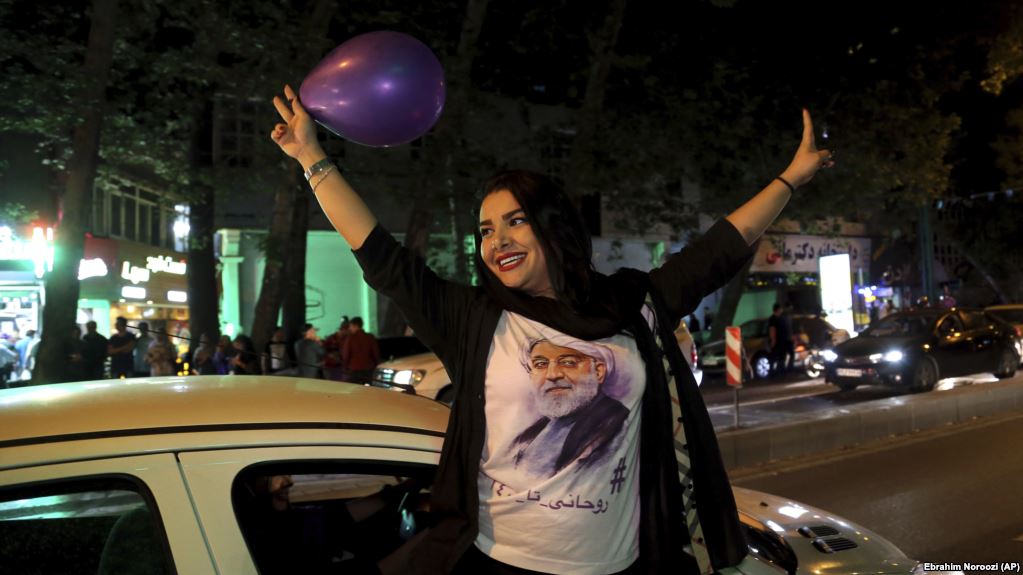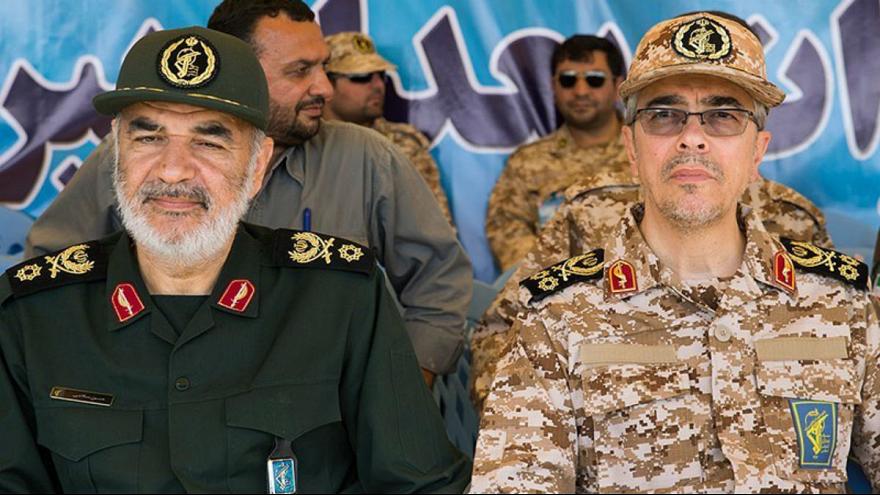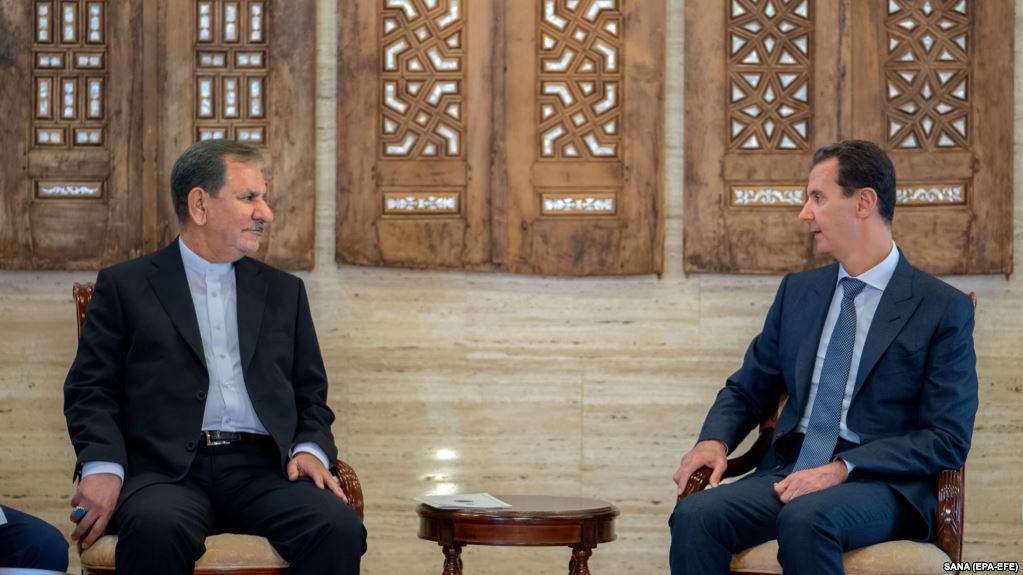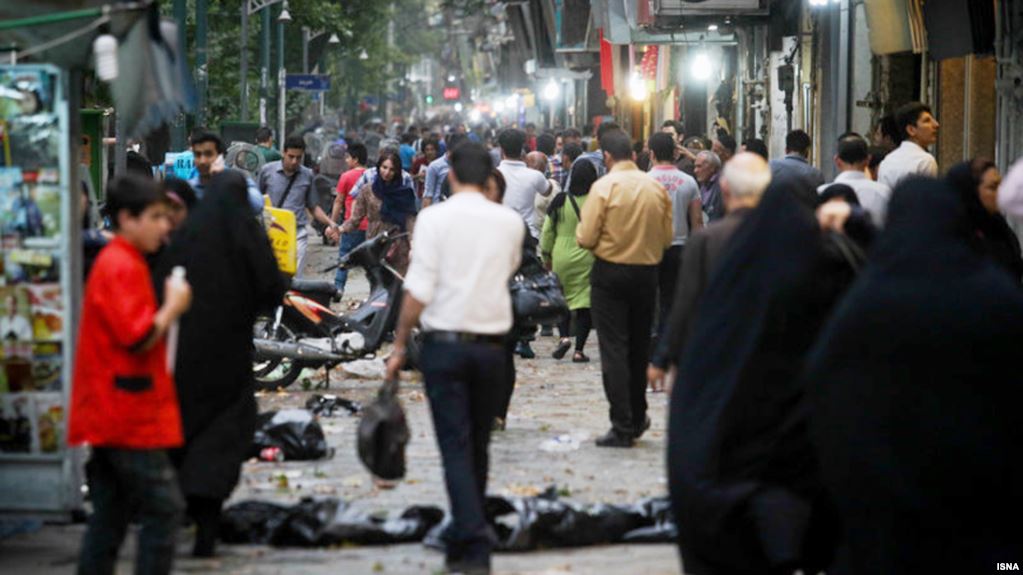
The Necessity of Increasing Salaries
The editorial of Tejarat Online focuses on the need for increasing salaries in Iran systematically, in proportion with annual inflation.
As for increasing salaries throughout the year, it must be said that given the fact that the difference in base salaries is too much, if salaries increase by 20% without implementing a step-by-step method, it will only add to the gap between the social classes. The government has proposed a 10% increase in salaries to the parliament for 2018-2019.
The editorial continues to mention that at that time, the lawmakers considered a minimum and maximum for increasing salaries by using a reverse step-by-step method. Based on the parliament’s ratification, salaries above 5 million Tomans didn’t increase this year. Moreover, those receiving less had a 20% increase in their salaries.
The government has now proposed a 20% increase in salaries for next year. Since the law stipulates that an increase in salaries should be proportionate with inflation, the lawmakers have made a different suggestion for increasing salaries next year. The government has allocated credit of 30,000 billion Tomans for increasing salaries but lawmakers have made different suggestions on how to allocate this credit. For example, one suggestion has been to increase salaries by 40% at most and by 5% at least.
Tejart – January 30
Overpricing is Not a Simple Economic Crime Any Longer
The editorial of Ebtekar newspaper reasons that under the current economic conditions, the overpricing of goods is no longer a simple economic violation; it is a serious crime and must be confronted by monitoring entities.
The editorial holds that if Iranian society was only dealing with problems due to new US sanctions, it could be said with certainty that the sanctions could be sidestepped and even turned into an opportunity. However, there are numerous problems in different fields, with sanctions adding fuel to certain longstanding problems.
The editorial continues to mention that Iranian society has been struggling with overpricing, and hoarding for several decades, and several governments tried to deal with these issues but were not very successful. Now that Iran is suffering under the biggest US sanctions, there are people who are overpricing goods too much – more than what is indicated in economic theories.
So that these individuals do not leash their own greed, what should be done with them? Should the monitoring entities only stand, watch, and do nothing? People not only expect a confrontation with those involved in overpricing, but they expect stronger monitoring measures and confrontation with these economic criminals.
The editorial adds that in these tough times, the enemies of the people must be identified. Those who under these conditions are after their own benefit are not simply economic violators any longer. At the very least, the people should be made aware of these individuals, in addition, legal courts should enforce appropriate punishments.
Ebtekar – January 29
Rouhani’s Absence in These Sensitive Days!
The editorial of Mostaghel newspaper focuses on the Iranian President Hassan Rouhani’s absence from the Expediency Council’s meetings at this “sensitive time” when the Council is deciding the fate of FATF related bills.
The Expediency Council is going through a sensitive time, as it is discussing FATF bills that can directly affect Iran’s domestic and foreign policies. During the late Hashemi Rafsanjani’s chairmanship of the Council, Hassan Rouhani didn’t attend many meetings of the Council, mainly because Rafsanjani backed the government.
The editorial continues to say that with Rafsanjani’s death and chairmanship of the Council transferred to Ayatollah Shahroodi, Rouhani’s absence continued, and that was because, at that time, the Council’s meetings were not regularly held, due to Shahroodi’s illness. However, with the appointment of Sadegh Larijani to the chairmanship of the Council, the meetings are being held more regularly. Yet Rouhani has been still absent from the meetings.
Meanwhile, the Council has dealt with the significant issue of the FATF bills in its meetings. Last week, Rouhani’s office mentioned that he had more important things to do on Saturdays so he would not be able to take part in these meetings. Nevertheless, the question is that under the current sensitive conditions: when FATF bills can have a direct impact on the government, what can be more important for Rouhani?
The editorial adds that an important point shouldn’t be forgotten that Rouhani knows very well that the structure of the Expediency Council is inherently faulty, and he cannot go to a meeting where he would sit with other ministers and old politicians, while he just has only one vote just like the others. Nevertheless, under the current conditions, it is convenient for the government if Rouhani goes to the Council’s meetings and responds to the opponents of the bills.
Mostaghel – January 28
People are Victims of the Government’s Wrong Policies
The editorial of Jahan Sanat daily deals with the plan proposed by lawmakers for a new gas quota system in Iran, calling it disadvantageous to the ordinary people.
The plan for allocating one litre of gas per each Iranian doesn’t seem to benefit the people. Iranian statesmen must know that when their wrong policies result in soaring prices, they cannot compensate the decrease in people’s power of purchase with any other policy. Under such conditions, giving money to people is the worst decision, because the money given to people will create more inflation.
The editorial goes on to say that according to the economic sciences, any measure will have additional costs. The statesmen must know that when the price of gas becomes 2000 Tomans per litre, people’s expenses will not increase equally; the prices will increase several times. Allocating 80 million litres of gas to 80 million Iranians per day is a failed plan because the implementation of the plan for targeted subsidies and paying cash subsidies has had no positive impacts on Iran’s economy; it has rather intensified the economic crisis. Eventually, the people were the main losers of this legislation.
The editorial, in conclusion, says the politicians must not add fuel to the growth of inflation with such policies, for it is the ordinary people who must pay the price for such policies, not the rich.
Jahan Sanat – January 27

Another Revolution in Iran?

Will there be another revolution in Iran? That question has pre-occupied Iranian political analysts as we approach the 40th anniversary of the Islamic revolution in Iran.
Mehdi Khalaji of the Washington Institute for Near East Policy argues, in his analytical article, against the possibility of another revolution in Iran. There might be regime change, but that will not be through another revolution, holds Khalaji.
The Islamic Republic is neither a democratic system nor a full-scale authoritarian regime. It belongs to the category of regimes which is nowadays called “hybrid regimes” by political scientists, suggests Khalaji. Hybrid regimes are a mixture of democratic institutions and authoritarian mechanisms.
Hybrid regimes, such as that of the Islamic Republic, have democratic forms and totalitarian contents, states Khalaji. The leader in such regimes has a central role, to the extent that he becomes the incarnation of the government. In the Islamic Republic literature, sometimes the leader is called the “system”.
Unlike totalitarian regimes of the 20th century, hybrid regimes enjoy creative flexibility in terms of their ideology. Such regimes, according to Khalaji, establish the strongest intelligence and security systems to monitor not only state organizations, but also the public sphere completely. In addition to that, hybrid regimes by holding elections help populism emerge repeatedly; making people excited enough to go to the polls. As such, the government can keep regaining its legitimacy.
As a hybrid regime, the Islamic Republic has a pseudo-totalitarian, religious-security system, argues Khalaji. In spite of its fight with the “cultural invasion” of the West, this establishment has an insatiable desire for modern technology, especially military industries.
Khalaji concludes that an overwhelming majority of the people do not see overthrowing the Islamic Republic as their only option. The traumatizing effects of the 1979 revolution and the eight-year war with Iraq still exist in the people’s collective memory. Furthermore, the Islamic Republic has been efficient in controlling and handling dissatisfaction and protests in society. Not to mention that people will pay a high price if they stage a revolution due to the regime’s capabilities in unleashing violence. There is no guarantee that a revolution will be successful either. What is more, there is not enough social solidarity for public mobilization against the establishment as Iran’s society has become much atomized today.
Saeed Ghasseminejad and Shervan Fashandi, in a joint article, disagreed with Khalaji’s arguments, stressing that another revolution will most certainly take place in Iran eventually. They argued that the Islamic Republic doesn’t have any plan, any resolution, and any ability in dealing with increasing corruption, inefficiency and international tensions – three problems are pushing Iran’s economy towards collapse.
Revolutions, Ghasseminejad and Fashandi believe, are the outcomes of the social base eroding for those in power, the opposition getting stronger, loss of hope for any reform from within, and the weakening willingness of law enforcement agencies to suppress the people on the order of the regime’s leaders. All these signs, except for the last one, already exist in the Islamic Republic.
Radio Farda
Radio Farda
Tensions Mount between Iran and Israel

Israel claimed to have attacked the IRGC Quds Force bases in Syria. This was followed with Hassan Nasrallah of the Lebanese Hezbollah warning the Israeli Prime Minister Benjamin Netanyahu of a new war in the region; Brigadier-General Hossein Salami, the second-in-command of the IRGC, followed suit and threatened Israel with total annihilation.
Salami emphasized that Iran’s strategy is to wipe Israel from the geographical landscape. According to Salami, “if Israel does anything to start a new war, it will certainly be the war which will be followed by its annihilation, occupied lands will be taken back, and Israelis won’t even have a grave in Palestine for burying their dead.”
Salami’s remarks contradicted what Mohammad Javad Zarif, Iran’s Foreign Minister, recently said. Zarif denied that the Islamic Republic’s officials were after destroying Israel.
In recent months, Israel has repeatedly attacked Iran’s positions in Syria many times. It announced targeting the positions of Quds Forces in the suburbs of the Syrian capital. The attacks took place after Benjamin Netanyahu warned Iran that if it doesn’t pull its forces out of Syria, Israel will attack Iran’s positions and interests in Syria.
Meanwhile, Iranian military officials talked of the possibility of change in Iran’s military strategy. Major General Mohammad Bagheri, Chief of General Staff of Armed Forces, said it would be possible for the armed forces of the Islamic Republic to adopt a more offensive strategy.
The remarks were made at a time when tensions between Tehran and Washington are escalating, Iran’s activities with regard to its missile program and its behavior in the region have been criticized, and Israel has attacked Iran’s positions in Syria.
Jean-Yves Le Drian, the French Foreign Minister, recently warned that in case talks over Tehran’s ballistic missiles do not happen, Paris is ready to impose new sanctions on Iran.
Bahram Ghassemi, the Spokesperson of Iran’s Foreign Ministry, reacted to Le Drian’s warnings, underlining that the Islamic Republic’s missile program is non-negotiable.
fa.euronews
Tasnim
Iran is to Consolidate its Presence in Syria through Reconstructing Syria’s Economy

As the war in Syria approaches the end, Iran is after playing a significant role in the reconstruction of Syria, which will result in consolidating its presence in that country. That is why Iran’s First Vice President Eshaq Jahangiri went to Syria this week heading a delegation consisting of high-ranking officials and businessmen from the private sector.
The Syrian President Bashar Assad, in his meeting with Jahangiri, underscored the “strategic significance” of agreements and cooperation plans that were signed this week between his country and Iran, urging they “will bolster the resistance of both countries against the economic war of some countries”.
Bashar Assad, pointing out to the agreements and other cooperation plans between Iran and Syria, stressed that “joint efforts must increase so countries that are after undermining our countries cannot find the chance to do so”.
During the trip, Jahangir declared Iran’s preparedness for taking part in “serious, important projects” in Syria during the reconstruction period. He stressed reconstructing the infrastructure for road and rail transportation, urging that Iran was ready to construct a joint railroad within a bilateral agreement between Iran and Syria, which would connect the Gulf to the Mediterranean Sea to boost trade between the two countries.
The Syrian Prime Minister Emad Khamis, in a meeting with Eshaq Jahangiri, went so far in making a pledge that Syria would allow Iran to participate in the construction of hundreds of thousands of residential units, the expansion of ports, agricultural development, and the telecommunication sector.
The trip of Iran’s First Vice President and Iran’s delegation to Syria coincided with the intensification of Israeli attacks against Iranian targets and Iran’s allies in Syria. The Israeli army announced that it engaged with the IRGC Quds Forces in Syria. Israel has said clearly that it will not allow Iran to consolidate its military presence in Syria and would hit Iranian targets in Syria as long as necessary.
Netanyahu has said that his country would intensify attack against Iran’s interests in Syria, which means that Iran’s projects and Iranians in Syria might be targeted, in addition to Iran’s military and its regional alliances.
Iranian people responded to Jahangiri’s trip to Syria and the signing of cooperation agreements with this country by chanting slogan against him. A group of people who have been defrauded by financial institutes gathered in the city of Rasht, northern Iran, to continue their protest. They chanted slogans against Jahangiri and Iran’s investments and expenses in Syria, saying “Jahangir, shame on you! Let go of Syria, think of us instead!”
Iran is said to have spent billions of dollars in Syria since the civil war broke out in that country.
Radio Farda
VOA Persian
Declining Growth, Rising Inflation: the Islamic Revolution’s 40th Anniversary Gift

Recently reports on two main economic indicators – the inflation and economic growth rate – were published in Iran. These reports show that along with the 40th anniversary of the Islamic revolution, Iran is struggling with its worst economic conditions during the past 4 decades – the most significant signs of which are a decline in its economic growth rate and a rising inflation rate.
The Parliament’s Research Center predicts in its report that economic growth in Iran would be negative in this and in the next year. The Research Center sees the decline in the rate of economic growth as the result of economic sanctions mainly, emphasizing that the US sanctions have affected Iran’s economy in different ways. For 2019-2020, the rate of growth is predicted as minus 5.5% to minus 4.5%. This means that the average income of each Iranian will drop by 20% in the coming year.
The Statistical Center of Iran, meanwhile, published the rate of inflation for the last month. The point-to-point rate of inflation was announced as 39.6%. This means that the consumers’ purchasing power show a 40% decrease compared to last year. The price of food items and beverages shows an average 56% increase – including 76% for red meat, 49% for dairies and egg, and 52% for vegetables.
A drop in incomes following the decline in GDP, along with a decrease in purchasing power due to the rise in the inflation rate, wouldn’t leave much on the table of Iranian households. The Islamic Republic gives this poisonous gift to Iranians on its 40th anniversary.
Meanwhile, housing prices in Tehran show a 90% increase compared to the same period last year. There has been a 19% increase in property rent as well. According to the Parliament’s Research Center, the poverty line for a family of four in Tehran is 2.7 million Tomans per month. The Center predicts that given the collapse in the value of the rial vs US dollar, expenses are expected to increase in the coming Iranian year (starting on March 21).
Radio Farda
Radio Zamaneh
